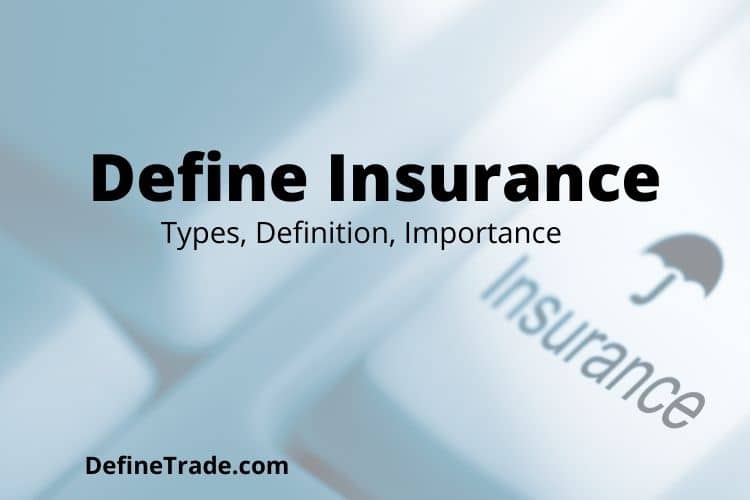Insurance Definition Types with Importance Advantages Dis Advantages

Insurance is a contractual agreement between an insurance company and the policyholder in which the insurer agrees to pay for certain losses or damages in exchange for premiums paid by the insured. Insurance is intended to protect the policyholder from financial loss in the event of an unexpected occurrence, such as a car accident or fire.
Insurance can also be used as a tool to transfer risk from one party to another. For example, if a business is worried about the potential for lawsuits, it may purchase liability insurance to protect itself from financial damages that may result from such litigation.
What are the types of Insurance?
There are many types of insurance, but some of the most common include:
- Auto Insurance: This type provides protection for the policyholder in the event of a car accident. It can cover damages to the policyholder’s vehicle, as well as any medical expenses that may be incurred as a result of the accident.
- Home Insurance: This type provides protection for the policyholder’s home Properties and belongings in the event of a fire, theft, or another natural disaster.
- Health Insurance: This type of insurance provides coverage for medical expenses, including doctor’s visits, hospital stays, and prescription drugs.
- Life Insurance: This type provides a death benefit to the policyholder’s beneficiaries in the event of the policyholder’s death.
- Business Insurance: This type provides protection for businesses from losses that may occur due to things like fires, theft, and liability lawsuits.
What is the purpose of Insurance?
The purpose of it is to protect people and businesses from financial losses in the event of an unexpected occurrence. It can help to protect people from costly medical expenses, damage to property, and even death. It can also help businesses to protect themselves from losses that may occur due to things like fires, theft, and liability lawsuits.
How much does Insurance cost?
The cost of insurance varies depending on the type of insurance policy and the amount of coverage that is purchased. Generally, the more coverage that is purchased, the higher the premiums will be. However, it is important to note that insurance is typically much less expensive than the costs associated with a potential loss.
Is Insurance mandatory?
Insurance is not mandatory in all states, but it is typically recommended. In some cases, such as when a driver is required to purchase auto insurance in order to register a vehicle, Insurance may be mandatory. However, there are many other types of Insurance that are not mandatory, but which may be beneficial for people or businesses to have.
Advantages of Insurance
There are many advantages to having Insurance, including:
- Protection from financial loss: Insurance can help to protect people and businesses from financial losses that may occur as a result of an unexpected event.
- Peace of mind: Insurance can provide peace of mind by knowing that you or your business is protected in the event of an unexpected loss.
- Affordable coverage: Insurance can be an affordable way to protect yourself, your family, or your business from potential financial losses.
- Flexible coverage: Insurance policies can be customized to fit your specific needs and budget.
Disadvantages of Insurance
There are a few disadvantages to having Insurance, including:
- The potential for denied claims: Insurance companies may deny claims for a variety of reasons, such as if they deem the loss to be excluded from the policy or if they feel the claim is not valid.
- The cost of premiums: Insurance premiums can be expensive, especially if you have a high amount of coverage.
- The need to file a claim: In order to receive benefits from an insurance policy, you typically need to file a claim. This can be time-consuming and may require documentation of the loss.
